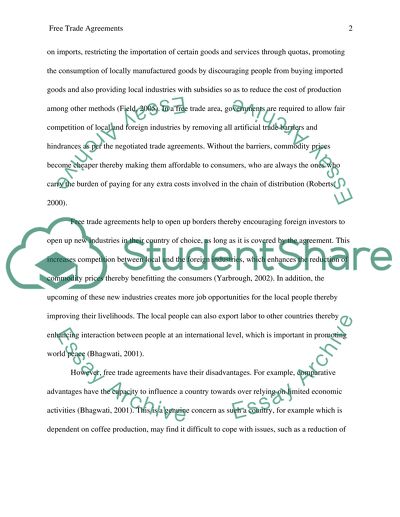Pros and Cons of The FTA (free trade agreements) Research Paper. Retrieved from https://studentshare.org/agriculture/1444696-pros-and-cons-of-the-fta-free-trade-agreements
Pros and Cons of The FTA (free Trade Agreements) Research Paper. https://studentshare.org/agriculture/1444696-pros-and-cons-of-the-fta-free-trade-agreements.


